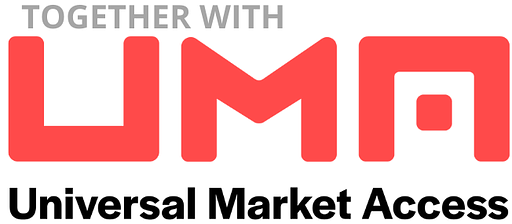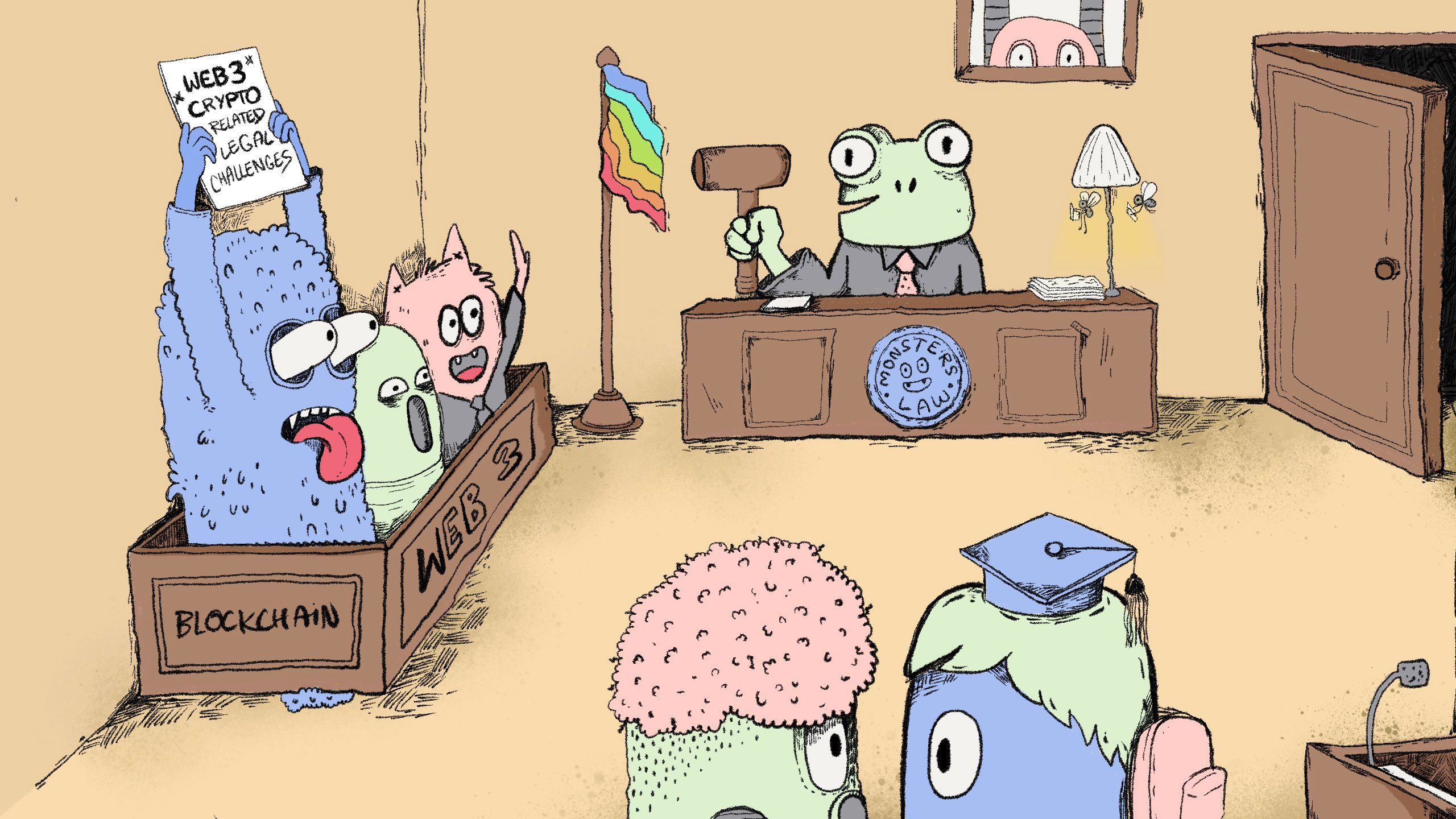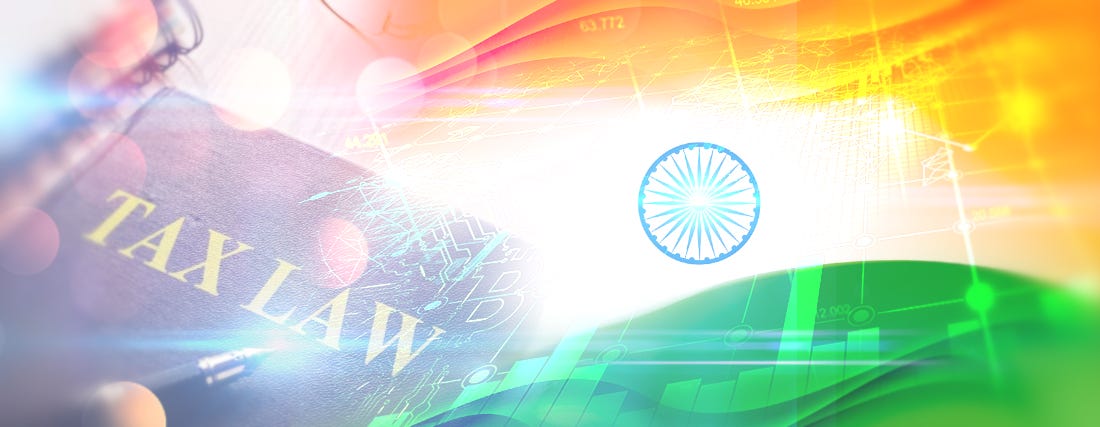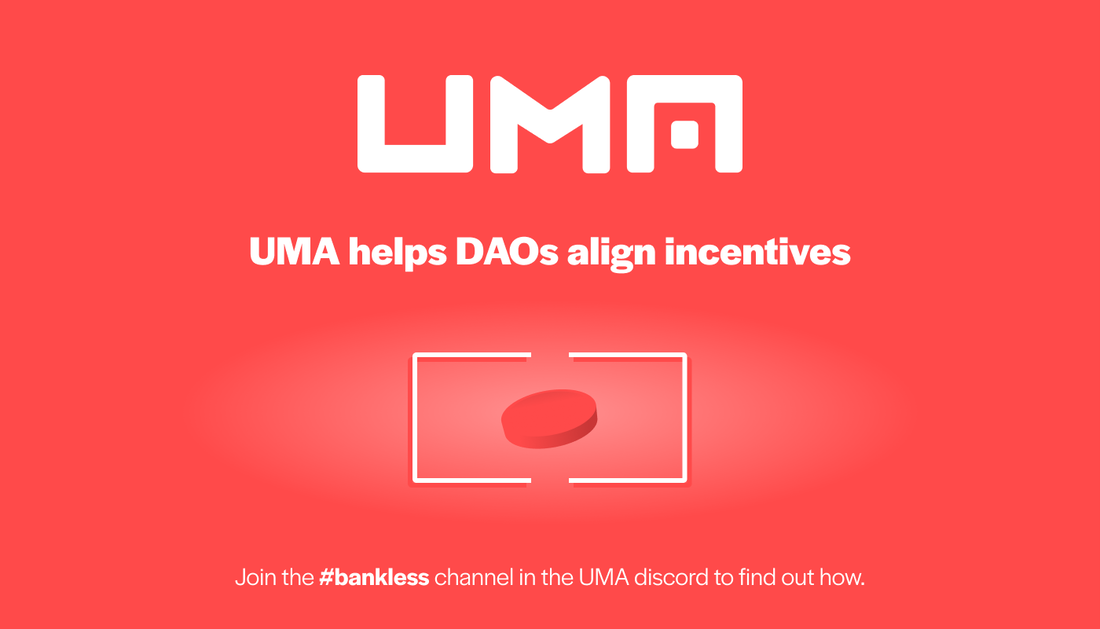Law Students in the Age of Crypto | Decentralized Law
Dear Crypto-Legal Observers, One may look to their past experiences and wish to turn back time, to relive some of the magical moments that brought them happiness and satisfaction. But it’s safe to say that no lawyer would wish to relive their law school exams. Law school develops knowledge and strength, but it can also be a stressful experience. Regardless, students are motivated to study and learn. It is not only a matter of grades, but also the desire to understand the foundations of the legal system and what justice really means. The younger generation is bombarded with distractions from social networks, but can seemingly still concentrate on cases and textbooks. Yet the blockchain is different, requiring near-continuous engagement with a world that is rapidly changing. Learning how the technology works and interacting with a global community is time-consuming. Is it possible to combine law school with engagement in the world of crypto and DAOs? It is a worthwhile pursuit to find the motivation to learn about the blockchain and concentrate on university studies. Students have a natural ability to understand new technology and to better frame the challenges that emerge from its use. One question that arises is whether law schools are equipping students for a career in which digital technology is ubiquitous. Perhaps law schools should make more room in their curriculum for the study of blockchains. On the other hand, one might argue that it is better to acquire a strong foundation in the law and afterwards focus on more specific areas of interest. The problem remains unsolved. But it seems that something must change…  In the meantime, what can a law student do to find the right balance between courses and exams and an unstoppable passion for the blockchain industry? To find out, Decentralized Law interviewed Shiv and Abraham, two law students from different countries who share a common interest in cryptoassets and blockchain technology. Also in this issue of Decentralized Law, we explore how common law may inform DAO structures in Europe, review tax and regulatory updates from India, and summarize news and articles from across the cryptoverse. Although this newsletter may help to familiarize readers with the legal implications arising out of blockchain technology, the contents of Decentralized Law are not legal advice. This newsletter is intended only as general information. Writers’ opinions are their own; therefore, nothing in this newsletter constitutes or should be considered legal advice. Contact a legal expert in your jurisdiction for legal advice. Contributors: eaglelex, lion917, hirokennelly.eth, COYSrUS.eth, Trewkat, lawpanda, DAOLAW, B(3,A)Rhunter, G0xse, Nittra, Tromso, Cheetah This is the official legal newsletter of BanklessDAO. To unsubscribe, edit your settings. 🎙 InterviewAbraham and Shiv on Studying Law in the Age of Crypto
Abraham: I have a background in commercial real estate and an undergraduate degree in British law. Shiv: My background is in biology and computer science. I am currently pursuing my undergraduate degree in Law from India.
Abraham: I believe that Web3 is the future and I’d like to play a role in the development of the future. Shiv: The possibilities of what we can build on a programmable blockchain has a hold on my imagination.
Abraham: No. Any mention of technology-related legal issues is incredibly sparse and course offerings broadly relating to technology are also highly limited. Shiv: No. They are hardly ever covered and mostly not well.
Abraham: Yes, this is incredibly difficult. Web3 moves extremely rapidly and merely staying abreast of crucial themes within the space is a significant time commitment. If one wishes to achieve more detailed specialized knowledge this is even more taxing and requires a more significant time commitment devoted to tracking and studying the space. My strategy has been to prioritize what I believe is a more important use of my time, and the result of that has been minimizing my time spent on studies and maximizing my time focused on Web3. Shiv: My priority is learning as much as I can about this rapidly growing space so I do the bare minimum in my legal studies. There are only 24 hours in a day and choices must be made.
Abraham: Broadly yes, but this isn’t specific to crypto, I think younger people tend to be able to adapt more quickly and effectively to technology in general. Pertaining to the law, the exception to this may be that older generations of lawyers likely have broader and more comprehensive legal experience rendering them more competent to address highly complex legal challenges. At the end of the day, some combination of the two is likely the optimal composition. Shiv: Younger generation may have the upper hand on understanding this technology but they don’t have the years of training needed for understanding complex legal issues. Together, we can go further.
Abraham: I plan to build in Web3 or invest in commercial real estate; perhaps I will find an intersection between the two. Shiv: I want to keep building in Web3. I am also interested in the application of machine learning to law so I hope to explore that more deeply. ⚖ DevelopmentsCommon Law LLCs May Be a Blueprint for DAO Structures in EuropeAuthor: DAOLAW
DAOs Are HereThe primary goal of a DAO construct is to create a decentralized virtual community that is set up to achieve a common purpose (such as a charity, venture fund, worker collective, or freelancer network) without the central management of traditional corporate entities. A DAO is not run by a board or hierarchy of managers but governed by democratic and highly participatory processes. Membership is typically tokenized, and only tokenholders (purchased or earned) are allowed to vote. DAOs often seek to avoid written agreements or other formalities, with members primarily agreeing to manage their affairs through software and the rules of the code. Rather than operating in one or a few countries, a DAO may span the globe and bring together thousands of members regardless of physical location or cultural or financial background. Collectively, DAOs currently have over $10 billion in assets (see deepdao.io). Last year alone, DAO assets increased more than tenfold. Yet, despite this growth, DAOs still lack the certainty of an established legal framework. This article describes the risks associated with this lack of certainty and proposes some possible solutions, with a focus on the European Union (EU). Legal Problems of DAOsThe decentralized structure and automatic processes of a DAO raise complex questions regarding the determination of its applicable jurisdiction, its status under corporate law, and its limited liability. These questions are crucial for initiators and participants to determine their applicable jurisdiction and their risk of personal liability. Traditional legal analysis does not provide clear answers regarding the problems. The traditional theories for determining the jurisdiction for companies in Europe are to look at the jurisdiction of incorporation (which a DAO does not have) or the administrative center (difficult to determine for a DAO). The assets of a DAO, if consisting only in digital currency, are spread worldwide. For that reason, the principle lex loci rei sitae (law of the place where the property is situated) cannot be applied. Unlike traditional software applications that reside on a particular server under the control of an operator assigned to a specific jurisdiction, DAOs run on every node of a blockchain – anywhere and nowhere. Furthermore, in contrast to traditional organizations run by individuals living in identifiable locations, DAOs are collectively managed by a distributed network of peers who contribute to the underlying blockchain-based network from anywhere in the world. Thus, a decentralized network, like a DAO, is fundamentally opposed to the traditional search for the cartographic center since no spatial center of gravity can be determined. In a litigation context, it would be possible to rely on the lex fori principle to determine where a DAO can be sued. Lex fori means the positive law of the state, nation, or jurisdiction within which a lawsuit is instituted or remedy sought. Apart from the legal-theoretical concerns the lex fori brings with it, the application also runs counter to considerable practical considerations due to the concept of the DAO. For example, it may be necessary for litigants to bring actions in several jurisdictions to obtain legal protection, and a legal dispute against a DAO may become very impracticable from an economic point of view. This issue needs to be further explored, and new theories need to be developed for these reasons. (See Mienert: Blockchain-based decentralized autonomous organizations and corporate law, Ph.D. Marburg 2022). Besides the problems in conflict of laws, one of the most significant risks is the classification of DAOs in most jurisdictions as a general partnership due to their structure, with the associated personal liability of all participants. The liability of the participants is unlimited and personal. Since many consumers participate in such DAOs, a legally secure framework should be created for consumer protection, eliminating this oft-unknown liability risk. The limited liability company (LLC) in the U.S., especially from Delaware and the Wyoming DAO LLC, gets much attention, and we should be mindful that these corporate forms also substantially affect European company law. For example, due to the Treaty of Friendship, Commerce and Navigation between the Federal Republic of Germany and the United States of America of October 29, 1954, a DAO LLC from Wyoming or an LLC from Delaware is also recognized in Germany as a limited liability company and can operate there. This should encourage the German and European legislators to push ahead to create a legal framework for DAOs so as not to leave the legal design to other states. It also appears essential to adapt company law to new digital structures to make Europe attractive as a permanent settlement and innovation location for blockchain-based business models. How to DAO in the EUHere are some possible solutions for establishing a DAO in the EU. Wyoming DAO LawThe Wyoming DAO Law represents the first time a separate legal framework has been created for this new type of organization. While this formal legal framework is a step forward for the crypto industry and may solve the problem of member liability, the new law does not address other fundamental issues and creates additional burdens for DAOs. For example, the bill makes it mandatory to publish the smart contract address and states that the DAO will be dissolved after being inactive for a year. Also, it uses vague legal terms that cannot be clearly defined at present. In addition, it is unclear whether DAO members are granted the right to act on behalf of the DAO and legally bind it; instead, it requires that this be clarified in the bylaws. Statutory regulation would be desirable concerning the necessary legal certainty. It is also not clear who is responsible for updating the underlying smart contract in the case of algorithmically managed DAOs. These problems are reflected in the fact that many DAOs prefer a traditional Delaware LLC to a Wyoming DAO LLC. Therefore, an EU law adopting the Wyoming law is not an ideal solution for the regulation of DAOs. A New EU DAO LawIdeally, a legal entity established under a new DAO law for Europe should be comparable to a Delaware LLC.
Proposals for a model law for a reasonably comprehensive legal framework for DAOs that meet most of these requirements exist, such as the COALA DAO model law. However, these model laws often face similar issues as the Wyoming DAO law. They solve the most significant issues regarding DAOs, like providing liability protection, but they attach more preconditions to establishing DAOs than to establishing conventional legal entities and they define DAOs in relatively narrow terms. Nonetheless, if drafted correctly to avoid these issues, a new DAO law for the EU could be a viable solution. Existing EU Corporate StructuresThe success of the Delaware LLC for many DAOs points to the possibility of using existing European corporate forms for a DAO. While Switzerland is not a member of the European Union, it is closely linked to it through its geographical location and bilateral agreements. Moreover, Swiss legal entities provide more flexibility than, for example, in Germany, and many crypto firms have made use of Swiss entities. One Swiss law firm used the Swiss civil law association to set up the first DAO structure in the form of Decentralized Autonomous Associations (DAAs). This raises the question of whether they are suitable for a DAO structure and can become the counterpart to the LLC. The DAA starts from a Swiss civil law association and adds a decentralized smart contract layer to replace the centralized governance process. A Swiss association consists of a community of members in which each member has one vote, which is not capital driven. The Swiss association also gives liability protection. The association's assets are exclusively liable for the association's debts unless the statutes provide for personal liability or an obligation of association members to make additional contributions. In other words, no member can be called upon to cover association debts unless the statutes provide otherwise. A nonprofit association in Switzerland can be set up very easily without the requirement of formal registration. Within the DAA, the members can propose and elect a Swiss delegate who will anchor the DAA in the real world by filing tax returns, conducting trademark litigation, and more. All other interactions and transactions between members and legal entities are completed through a smart-contract system so that all governance transactions are decentralized. There are some downsides to using the Swiss legal structure, namely that decentralization is more challenging to achieve. The DAA smart contract has no token and is simply a membership directory. It looks like a traditional association model with one member and one vote. As mentioned above, the association must be a nonprofit for an easy setup. Tying the legal existence of a DAO to some form of existing legal and judicial framework naturally leads to the need for a representative in the chosen legal framework and jurisdiction, which in turn centralizes the DAO and can lead to the failure of the DAO concept. While Swiss legal forms are still among the most flexible in Europe, the example of the association also shows the general problem of Romano-Germanic legal forms, namely their relatively rigid centralized structures compared to the common law LLC. A Way ForwardThere is currently no perfect legal solution for a DAO structure. Even the most flexible corporate forms in the European legal area cannot match the LLC. However, the popularity of the Delaware LLC shows that a flexible corporate form is necessary to accommodate this new organizational structure in Europe, especially in the for-profit sector. The best way forward is to combine the examples given: to create a new legal entity for DAOs that is comparable to the LLC, based on the COALA model, and with minimal barriers to formation. Creating a new legal entity would also be in line with current legal developments in Europe, such as the European company law package, which would promote the digital formation of companies. Europe has all the right tools to build a comprehensive DAO law, and now it just needs to get to work. New Tax and Regulatory Update From IndiaAuthor: Lion917
Taxes for Digital AssetsOn February 1, 2022, the Finance Minister of India, Smt. Nirmala Sitharaman, introduced India’s taxation regime for cryptoassets during the annual budget parliamentary session for the financial year 2022-23 (the Bill). The 2022 Bill would levy a 30% tax on income earned on the transfer of any Virtual Digital Assets (VDA). Moreover, to capture transaction details, it would also levy a 1% Tax Deductible at Source (TDS) on payments made concerning the transfer of VDAs. Sitharaman later clarified that the Bill merely taxes the profit arising from such transactions, and taxation of gains from a transaction has no effect on the legality of such transactions. If passed, the Financial Bill would be applicable on April 1, 2022. The Bill is expected to be passed during the second budget session of the Parliament (March 14, 2022 to April 8, 2022). The Bill would also allow the central government to specify which digital assets come under the definition of a non-fungible token (NFT) through a notification in the Official Gazette. Legal DevelopmentsThe Reserve Bank of India (RBI) first issued a regulatory warning against the trading of cryptocurrencies in 2013 and issued similar warnings through 2017. In 2018, the RBI restricted Indian banking and payment services from dealing in virtual currencies. It further asked all such providers to immediately terminate their relationships with parties dealing with cryptoassets. This effectively led to a ban on the trading of cryptocurrencies, as the means to invest and liquidate virtual currency gains were restricted. However, the Supreme Court of India, through the Internet and Mobile Association of India v. RBI (IAMAI case), struck down this effective ban, citing it as disproportionate and unreasonable. In 2019, the Inter-Ministerial Committee established by the Indian Ministry of Finance released a report exploring the regulatory approach towards virtual currencies. It called for an absolute ban on trading virtual currencies and criminal sanctions while supporting the idea of blockchain and distributed ledger technology for other uses. These recommendations weren’t introduced through any bill in the Parliament; a similar situation was witnessed in January 2021 as several reports stated that a bill banning cryptoassets would be reported in the parliamentary bulletin, but nothing was introduced. Recently, in December 2021, it was reported in the bulletin that a bill banning all private cryptoassets would be introduced. However, the central government later changed the bill’s description. There is speculation that cryptoassets won’t be treated as legal tender in India and that the Securities and Exchange Board of India (SEBI) will regulate them. Previous Tax RegimeIn the past, VDAs have been taxed under other tax legislation. Depending on their category, they were taxed as capital gains on investments, business income, or income from other sources. If the gains from cryptoassets were held for a short term, i.e., less than 36 months, they would be treated as capital gains and would be taxed like gains from stocks or equity. However, if they were held for a long term, i.e., more than 36 months, they would be classified as long-term capital gains and would be subject to a tax of 20% (adjusted for inflation). Alternatively, if the cryptoassets were treated as a medium of exchange, they were classified as profits and gains from business and profession. The new Bill now places virtual assets in a new category, and income from such assets have been categorized similarly as gambling/lottery income. Analyzing the 2022 BillThe 2022 Bill would tax the transfer of VDAs at the rate of 30% irrespective of the period of holding and does not allow for any deduction of expenses incurred, aside from the cost of acquisition. Similarly, the baseline exemption level (INR 250,000) does not apply to income from VDA transfers. If the transfer results in a loss, such loss cannot be set off against any other income, nor can it be carried forward to future tax years. This treatment would not be favorable for full-time Web3 contributors. The Bill would also apply the definition of VDA to the Income Tax Act, which includes NFTs and tokens of a similar nature. Many professionals have objected to the implementation of TDS, as it requires identity tracking, which isn’t technically feasible in decentralized systems. The absence of clear guidelines concerning the implementation of the 1% levy on TDS would create a compliance nightmare for investors and centralized exchanges. The high taxes and the ambiguity concerning TDS have caused many investors to shift their holdings outside India to decentralized exchanges. They also fear its implication on inter-platform transactions, which weren’t previously charged, but are now covered under the new Bill. It is suspected that intraday trading on exchanges would be disrupted since TDS on repeated trades would result in a significant loss of trading profits. The Finance Minister of India has clarified that taxation is a nation’s sovereign right. However, the final decision on the nature of regulations applicable to cryptoassets is still pending. The Grant Thornton firm, in its analysis of the 2022 Bill, noted that there would still be ambiguity concerning the taxation of activities such as the development and creation of VDAs. Moreover, it highlighted that since VDAs are often sold and purchased in foreign currency or stablecoins, treatment of a gain or loss resulting from currency volatility is yet to be clarified. The lack of clarity surrounding VDA’s may ultimately incentivize many investors to liquidate their assets before the Bill becomes applicable on April 1, 2022. 🙏 Sponsor: UMA - Making financial markets universally accessible. DAO Better. 🌐 News and Selected Articles
HMRC Seizes NFT For First Time in £1.4m Fraud CaseAuthor: BBC News 🔑 Insights:
Crypto Exchange Binance Blocks Russian Users Targeted by SanctionsAuthor: Tom Wilson 🔑 Insights:
China Tightens Law to Jail Those Found Raising Funds Through Crypto SalesAuthor: Yogita Khatri 🔑 Insights:
European Parliament to Cancel Vote on Cryptoassets FrameworkAuthor: Lubomir Tassev 🔑 Insights:
Tether Slashes Commercial Paper Holdings by 21%Author: Helene Braun 🔑 Insights:
Mexican Senator to Propose Crypto Law: ‘We Need Bitcoin as Legal Tender’Author: Helen Partz 🔑 Insights:
✅ Action Items🤖 Learn more about the Metaversal Tax Service📚 Read The BANK Token - A Legal Assessment👩⚖️ Join the BanklessDAO Legal Guild 🏴⚔ Join LexDAO🐵 Join the LeXpunK Army🚨 Contact your Representatives or Senators🙏 Thanks to our sponsorUMAUMA can help DAOs achieve their goals by incentivizing their community. UMA’s KPI options align incentives and build loyalty through airdropping options tokens, which pay out a variable amount of the protocol’s token depending on the KPI metric being tracked, giving the community a powerful motivator and focussing their efforts to collaboratively achieve the protocol’s aims. If the metric is not fully achieved, the residual amount is returned to the DAO treasury. The BanklessDAO Legal Guild has used KPI options to crowdsource international legal opinion on the regulatory space that surrounds DeFi. If you liked this post from BanklessDAO, why not share it? |
Older messages
Monaverse, the Renaissance of the Metaverse | Decentralized Arts
Monday, February 28, 2022
BanklessDAO Weekly NFT and Cryptoart Newsletter
A Love Letter to DAOs | State of the DAOs
Thursday, February 24, 2022
You're reading State of the DAOs, the high-signal low-noise newsletter for understanding DAOs.
March for Words, Bounty Board upgrades & wen subDAO? | Gearing Up
Wednesday, February 23, 2022
BanklessDAO Weekly Project and Guild Updates Newsletter
Remove the Quorum | BanklessDAO Weekly Rollup
Saturday, February 19, 2022
Remove the Quorum | BanklessDAO Weekly Rollup Catch Up With What Happened This Week in BanklessDAO Dear Bankless Nation 🏴, It's time to vote! If you're not sure why, read on as siddhearta gives
Decentralized Digital Identity | Decentralized Law
Thursday, February 17, 2022
BanklessDAO Legal Newsletter
You Might Also Like
Cardano’s Charles Hoskinson reacts to White House crypto summit snub
Thursday, March 6, 2025
Hoskinson focuses on legislative progress, unfazed by his absence from Trump's crypto summit. ͏ ͏ ͏ ͏ ͏ ͏ ͏ ͏ ͏ ͏ ͏ ͏ ͏ ͏ ͏ ͏ ͏ ͏ ͏ ͏ ͏ ͏ ͏ ͏ ͏ ͏ ͏ ͏ ͏ ͏ ͏ ͏ ͏ ͏ ͏ ͏ ͏ ͏ ͏ ͏ ͏ ͏ ͏ ͏ ͏ ͏ ͏ ͏ ͏ ͏ ͏ ͏
Monthly Update on Blockchain Technology: Pectra testnet activation, zero-knowledge gossip, BNBChain roadmap
Thursday, March 6, 2025
Written by: GaryMa, WuBlockchain ͏ ͏ ͏ ͏ ͏ ͏ ͏ ͏ ͏ ͏ ͏ ͏ ͏ ͏ ͏ ͏ ͏ ͏ ͏ ͏ ͏ ͏ ͏ ͏ ͏ ͏ ͏ ͏ ͏ ͏ ͏ ͏ ͏ ͏ ͏ ͏ ͏ ͏ ͏ ͏ ͏ ͏ ͏ ͏ ͏ ͏ ͏ ͏ ͏ ͏ ͏ ͏ ͏ ͏ ͏ ͏ ͏ ͏ ͏ ͏ ͏ ͏ ͏ ͏ ͏ ͏ ͏ ͏ ͏ ͏ ͏ ͏ ͏ ͏ ͏ ͏ ͏ ͏ ͏ ͏ ͏ ͏ ͏ ͏
Reminder: White House Schedules First Ever Crypto Summit
Thursday, March 6, 2025
March 3rd, 2025 Sign Up Your Weekly Update On All Things Crypto TL;DR White House Schedules First Ever Crypto Summit SEC Declares Meme Coins Are Not Securities Consensys Secures Victory In MetaMask
Donald Trump to reportedly unveil Bitcoin reserve strategy at White House crypto summit
Wednesday, March 5, 2025
Key industry figures, including Michael Saylor and Brian Armstrong, to join Trump at White House crypto summit. ͏ ͏ ͏ ͏ ͏ ͏ ͏ ͏ ͏ ͏ ͏ ͏ ͏ ͏ ͏ ͏ ͏ ͏ ͏ ͏ ͏ ͏ ͏ ͏ ͏ ͏ ͏ ͏ ͏ ͏ ͏ ͏ ͏ ͏ ͏ ͏ ͏ ͏ ͏ ͏ ͏ ͏ ͏ ͏ ͏
DeFi & L1L2 Weekly — 🚀 Cronos pioneers seamless crypto-to-debit transfers; Virtuals Protocol saw a 95% drop in tr…
Wednesday, March 5, 2025
Cronos pioneers seamless crypto-to-debit transfers. Virtuals Protocol saw a 95% drop in trading volume. Ondo Finance joined the Mastercard network to improve cross-border payments. ͏ ͏ ͏ ͏ ͏ ͏ ͏ ͏ ͏ ͏
DeFi & L1L2 Weekly — 🚀 Cronos pioneers seamless crypto-to-debit transfers; Virtuals Protocol saw a 95% drop in tr…
Wednesday, March 5, 2025
Cronos pioneers seamless crypto-to-debit transfers. Virtuals Protocol saw a 95% drop in trading volume. Ondo Finance joined the Mastercard network to improve cross-border payments. ͏ ͏ ͏ ͏ ͏ ͏ ͏ ͏ ͏ ͏
Global Crypto Mining News in February:U.S. Customs Increases Scrutiny of Chinese Bitcoin Mining Machines, Bitdeer …
Wednesday, March 5, 2025
1. Bitfarms said it is exploring ways to enter the artificial intelligence and high-performance computing space, as bitcoin miners continue to explore alternatives following last April's bitcoin
Crypto traders lose nearly $1 billion as US-China trade war overshadows Trump’s crypto reserve initiative
Tuesday, March 4, 2025
US trade tensions with China and allies spark $500 billion crypto market plunge despite Trump's crypto reserve plan. ͏ ͏ ͏ ͏ ͏ ͏ ͏ ͏ ͏ ͏ ͏ ͏ ͏ ͏ ͏ ͏ ͏ ͏ ͏ ͏ ͏ ͏ ͏ ͏ ͏ ͏ ͏ ͏ ͏ ͏ ͏ ͏ ͏ ͏ ͏ ͏ ͏ ͏ ͏ ͏
Analyst Spotlight Solana Overview
Tuesday, March 4, 2025
An in-depth look at Solana (SOL) and this week's market developments ͏ ͏ ͏ ͏ ͏ ͏ ͏ ͏ ͏ ͏ ͏ ͏ ͏ ͏ ͏ ͏ ͏ ͏ ͏ ͏ ͏ ͏ ͏ ͏ ͏ ͏ ͏ ͏ ͏ ͏ ͏ ͏ ͏ ͏ ͏ ͏ ͏ ͏ ͏ ͏ ͏ ͏ ͏ ͏ ͏ ͏ ͏ ͏ ͏ ͏ ͏ ͏ ͏ ͏ ͏ ͏ ͏ ͏ ͏ ͏ ͏ ͏ ͏ ͏
ETH Denver Conference Impressions: VC Indifference, Lackluster Narratives, and the Disillusionment of Idealism
Tuesday, March 4, 2025
Compared to last year — and even more so than the recently concluded Consensus — the overall atmosphere was much more subdued, with panel speakers noticeably outnumbering the audience. ͏ ͏ ͏ ͏ ͏ ͏ ͏ ͏






